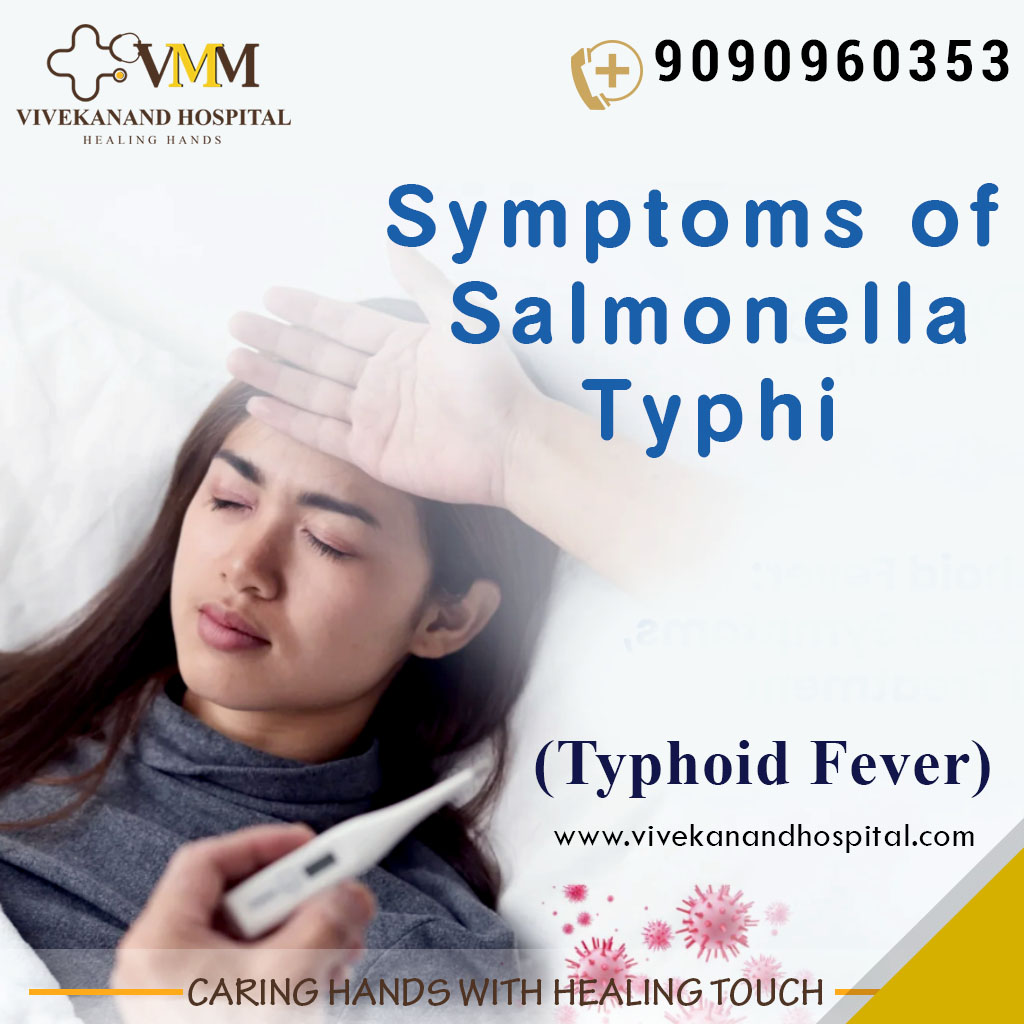Introduction:
Typhoid fever, caused by the bacterium Salmonella enterica serotype Typhi, is a significant health concern in India, particularly in regions like Odisha. Recognizing its symptoms early is crucial for timely treatment and preventing complications. This article outlines the stages and symptoms of typhoid fever to aid in early detection and management.
Salmonella Typhi is a bacterium that infects the intestinal tract and bloodstream, leading to typhoid fever. The infection spreads through contaminated food and water, and is prevalent in areas with inadequate sanitation.
Incubation Period:
After exposure, symptoms typically appear within 6 to 30 days. The onset is gradual, starting with mild symptoms that intensify over time.
Read Also: Vivekanand Hospital Bhubaneswar Contact Number- Emergency & Appointment Info
Early Symptoms (First Week):
– Fever: Begins low and increases daily, potentially reaching up to 104°F (40°C).
– Headache and Malaise: Persistent headache accompanied by a general feeling of unwellness.
– Abdominal Discomfort: Mild stomach pain or discomfort.
– Constipation or Diarrhea: Digestive disturbances may vary among individuals.
– Loss of Appetite: Decreased desire to eat, leading to weakness.
Advanced Symptoms (Second Week Onwards):
– High Fever: Sustained high temperature with minimal fluctuation.
– Abdominal Pain: Intensified stomach pain, often in the lower right quadrant.
– Rose Spots: Flat, rose-colored spots appearing on the abdomen and chest.
– Enlarged Spleen and Liver: Swelling of these organs may occur.
– Severe Diarrhea or Constipation: Continued digestive issues, sometimes described as ‘pea soup’ stools.
– Delirium: Confusion and altered mental state in severe cases.
Potential Complications:
– Intestinal Perforation: A life-threatening condition requiring immediate medical attention.
– Internal Bleeding: May present as black, tarry stools or vomiting blood.
– Neurological Symptoms: Including confusion, agitation, or hallucinations.
When to Seek Medical Help:
Immediate medical consultation is advised if you experience:
– Persistent high fever lasting more than three days.
– Severe abdominal pain.
– Signs of dehydration, such as dry mouth and decreased urination.
– Unexplained rash or confusion.
Prevention Tips:
– Safe Drinking Water: Always consume boiled or treated water.
– Proper Sanitation: Maintain hygiene, especially handwashing before meals.
– Vaccination: Consult healthcare providers about typhoid vaccines, especially before traveling to high-risk areas.
– Food Safety: Avoid raw or undercooked foods, and ensure fruits and vegetables are properly washed.
Conclusion:
Typhoid fever remains a significant health issue in Odisha and across India. Early recognition of symptoms and prompt medical intervention are vital to prevent severe complications. Vivekanand Hospital in Bhubaneswar is equipped to provide comprehensive care for typhoid fever. If you or someone you know exhibits symptoms, seek medical attention promptly.

